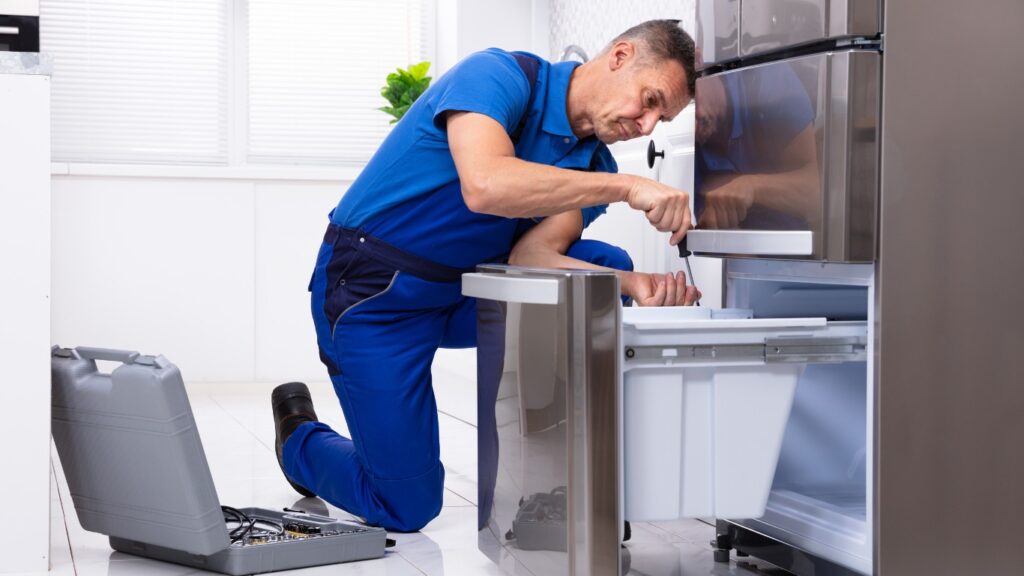- Home
- Information Hub - Germany
- Leaving Your Apartment in Germ ...
How to Leave an Apartment in Germany: Important Rules Everyone Must Follow
Moving out of an apartment in Germany isn’t as simple as handing over the keys and walking away. Unlike in many other countries, German landlords have high expectations when it comes to the condition in which a tenant leaves the property. Whether you’re a student, working professional, or family, following proper move-out etiquette is crucial—not just to avoid deductions from your Kaution (security deposit), but also to leave a good impression.
Here’s a guide to help you understand what’s expected and how to make sure your move-out process is smooth and stress-free.
1. Deep Clean Is a Must
German landlords expect apartments to be returned in a spotless condition—dust-free, damage-free, and as close to the original state as possible. This means:
• Thoroughly clean the kitchen, bathroom, and windows
• Remove any limescale, grease, or grime
• Scrub toilets, sinks, and tiles
• Clean out the fridge, oven, and kitchen cabinets
• Mop floors and vacuum carpets.
Even dust on shelves or stains in the sink can be enough to cause a deduction from your deposit.
2. Dust and Wipe All Surfaces
This includes:
• Shelves
• Windowsills
• Cupboards (inside and outside)
• Doors and handles
• Switchboards and sockets
German standards for cleanliness are precise, and even small areas can be checked during the final handover.
3. Repair or Report Damages
If you’ve caused any damage—even minor ones like:
• A broken curtain hook
• A scratched wall
• Loose tiles or damaged fittings
You must either fix them or report them honestly to the landlord. Unreported issues may lead to higher deductions, and landlords have every right to get professional repair services at your cost if needed.

4. Consider Hiring a Professional Cleaning Service
If you’re unsure whether your cleaning will meet German standards or you don’t have time, it’s smart to hire a professional move-out cleaning service. Yes, it costs money, but it’s often less than what the landlord might deduct for post-handover cleaning.
Bonus tip: Keep the cleaning receipt and show it during the handover.
5. Don’t Assume Deposit Deductions Are Unfair
Many expats, especially those new to Germany, feel disappointed when their deposit is reduced. But it’s important to understand:
• This is not discrimination
• It’s not personal
• It’s simply the German system
If an apartment isn’t left properly cleaned or restored, the landlord has every right to use part of the deposit to bring it back to standard.
6. Additional Points to Remember
• Remove all personal belongings, including small items
• Dispose of garbage properly and return all keys (including basement or mailbox)
• Check your contract for specific move-out terms
• Do a walk-through with your landlord and ask for a written confirmation if possible

What If you don’t follow the proper move-out and cleaning rules in Germany, your landlord has several legal rights to protect their property and ensure standards are maintained?
Here’s a breakdown of what landlords can legally do if the apartment is not returned in acceptable condition:
1. Deduct from Your Security Deposit (Kaution)
The landlord’s most common and legally protected right is to deduct money from your Kaution to cover:
• Professional cleaning costs
• Repairs for damages (beyond normal wear and tear)
• Cost of replacing missing items (e.g. keys, fixtures)
Note: This is allowed even without your prior approval, as long as they provide a valid invoice or proof of cost.
2. Delay Returning Your Deposit
In Germany, landlords are not required to return the deposit immediately after you move out. If repairs or deep cleaning are needed, they can:
• Hold your deposit for several months (typically up to 6 months)
• Use the time to inspect for hidden damages or unpaid utility bills
3. Hire Professionals at Your Cost
If you leave the apartment uncleaned or damaged, landlords can:
• Hire a professional cleaning or repair service
• Send you the bill or deduct the cost from your deposit
They are not obliged to clean it themselves—they can choose any professional service provider, and you’ll be responsible for the actual cost.
4. Refuse to Accept the Apartment Handover
If the apartment is in very poor condition, the landlord may:
• Refuse to accept the keys
• Ask you to clean or fix the issues before officially completing the handover
• Schedule a new handover date, and if you don’t comply, document the condition and proceed with deductions
5. Legal Action (In Rare Cases)
If the damages are severe or if unpaid dues remain, the landlord may:
• Take legal action to recover losses that exceed the deposit
• File a case in the local tenant-landlord court (Mietgericht)
Important Note for Tenants:
Landlords cannot deduct money unfairly—they must:
• Justify each deduction
• Provide receipts or cost estimates
• Show photos or evidence if there’s a dispute
If you feel any deduction is unreasonable, you can challenge it legally or with tenant support services like Mieterverein.
Final Note
Living and renting in Germany comes with responsibilities that may differ from what many are used to in other countries. Understanding and respecting these expectations—not just during your stay, but also when moving out—reflects professionalism and cultural awareness. Landlords are well within their legal rights to deduct from your deposit for any cleaning or repairs required to restore the apartment to its original condition.
By taking the time to clean thoroughly, fix small issues, and follow the handover process honestly, you protect your own interests and uphold the trust that makes the German housing system work efficiently. A smooth move-out means a full deposit return and a strong rental reference for your future—because in Germany, a clean exit speaks louder than words.




